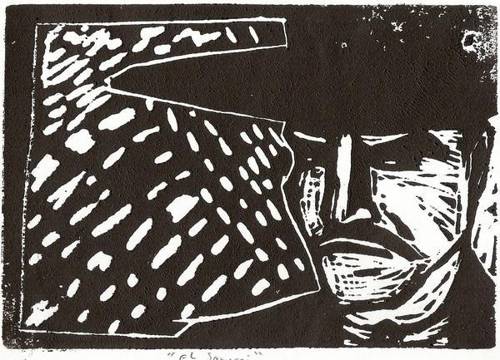
FAQ About The Evolution of Pop Culture Satire

What is pop culture satire?
Pop culture satire is a form of humor that uses irony, exaggeration, and ridicule to criticize or mock popular culture, society, or political norms. It is often used in various media formats, including television, films, literature, and online content, to provoke thought and highlight societal issues.

How has pop culture satire evolved over the years?
Pop culture satire has significantly evolved, adapting to changes in societal attitudes and the mediums through which it is consumed. Early examples focused on literature and print comics, while the television era brought shows like "Saturday Night Live" and "The Simpsons," which became key platforms for satire. The internet age has further transformed satire with platforms like YouTube, memes, and social media offering new avenues for creators to reach wide audiences instantly.

What role does satire play in social critique?
Satire serves as an effective tool for social critique by using humor to expose and challenge societal flaws, hypocrisy, and injustices. It encourages audiences to reflect on societal norms, behaviors, and institutions in a way that is both engaging and thought-provoking. By making serious issues more accessible, satire can drive public discourse and inspire social change.

How has satire in television impacted pop culture?
Television satire has had a profound impact on pop culture by shaping public opinion and sparking discussions on topical issues. Shows like "South Park," "The Daily Show," and "The Colbert Report" have used humor to critique political figures, media narratives, and cultural trends, often influencing the way audiences perceive these subjects.

In what ways has satire in movies evolved?
Satirical movies have transitioned from subtle social criticism to more overt, sometimes controversial, commentaries on modern issues. Early films like "Dr. Strangelove" set a precedent for political satire, while recent films like "Get Out" and "Jojo Rabbit" approach topics of race and history with sharp, poignant humor, reflecting the changing dynamics of societal attitudes.

Can online content be considered a form of pop culture satire?
Yes, online content is a powerful form of pop culture satire. Platforms like YouTube, Twitter, and TikTok allow creators to produce and distribute satirical content rapidly, reaching diverse audiences across the globe. Memes, parody videos, and comedic commentary on current events are all popular forms of satire thriving online.

What are some common techniques used in pop culture satire?
Common techniques in pop culture satire include exaggeration, irony, parody, and absurdity. These elements help amplify the humorous critique of cultural norms and societal issues, making them more approachable for audiences. Satirists often employ these techniques to subvert expectations and draw attention to underlying truths within their subject matter.

How does satire differ in various media formats like TV, film, and online?
Satire varies across media formats primarily in its delivery and reach. Television satire, such as sketch comedy, uses visual and auditory elements to engage audiences live or via streaming services. Film satire often explores broader narratives with deeper thematic elements. Online satire, on the other hand, leverages brevity and interactivity to engage with a global audience, often utilizing the rapid spread and evolution of trending topics.

Why is satire considered an important part of pop culture?
Satire is crucial to pop culture because it provides a platform for questioning and critiquing societal norms and behaviors in an accessible manner. It opens dialogues on controversial subjects by using humor, allowing for discussions that might otherwise be avoided. This role helps drive societal reflection and potential change while also entertaining audiences.

Who are some influential figures in the evolution of pop culture satire?
Influential figures in the evolution of pop culture satire include writers and directors like Jonathan Swift, Mark Twain, and Stanley Kubrick, who have set the foundation with their incisive works. In recent decades, comedians such as John Stewart, Tina Fey, and Armando Iannucci have brought satire to mainstream television and film, influencing the current landscape of satirical expression.

What is the impact of satire on political discourse?
Satire greatly influences political discourse by making political issues more relatable and engaging for a broader audience. Highlighting the absurdities and contradictions within politics through humor encourages public dialogue and awareness. Programs like "Last Week Tonight with John Oliver" have demonstrated how satirical commentary can affect public opinion and contribute to movements for policy changes.

How have digital platforms changed the landscape of pop culture satire?
Digital platforms have revolutionized pop culture satire by allowing creators to share their content instantly across the world. Sites like YouTube, Twitter, and TikTok enable immediate feedback and widespread dissemination, which increases the reach and impact of satirical works. This accessibility allows satire to respond quickly to current events, making it a dynamic and powerful form of commentary.

What are some examples of successful satirical TV shows?
Successful satirical TV shows include "Saturday Night Live," which has been a staple of American television comedy for decades, "The Daily Show," known for its sharp political commentary, and "The Simpsons," which has used animated humor to critique everything from politics to social trends. Each of these shows has left a lasting imprint on both television and pop culture at large.

How does satire address common cultural stereotypes?
Satire addresses cultural stereotypes by exaggerating and ridiculing them, often revealing the absurdity of these tropes. Through humor, satire challenges audiences to reconsider preconceived notions and encourages more nuanced understanding. Shows like "The Office" and "Parks and Recreation" have highlighted workplace stereotypes, prompting discussions about corporate cultures and human behavior.

In what ways do satirical movies influence societal views?
Satirical movies influence societal views by presenting subjects in a way that challenges the audience to think critically about status quo assumptions and beliefs. Movies like "Borat" use shocking humor to expose prejudices and ignorance, prompting viewers to reflect on their own biases. This can inspire broader conversations about societal norms and encourage progressive attitudes.

How do memes contribute to pop culture satire?
Memes contribute to pop culture satire by providing a quick, easily digestible format for humorous critique. Their viral nature allows them to spread rapidly, often embedding satirical commentary on societal and pop cultural phenomena within simple images or short videos. Memes can encapsulate complex ideas succinctly, making them a powerful tool for social commentary and engagement among digital natives.

Can satire lead to real social change?
While satire primarily entertains, it can indeed lead to social change by raising awareness and sparking discussions about important issues. By making provocative content accessible, satire encourages audiences to question and critique societal norms, potentially influencing public opinion and inspiring shifts in attitudes or policy.

What are the challenges faced by creators of pop culture satire?
Creators of pop culture satire face challenges such as striking the right balance between humor and sensitivity, particularly when dealing with sensitive topics. They also contend with potential backlash or misinterpretation of their work. Additionally, in an age of fast-moving digital content, staying relevant and impactful in a cluttered media landscape can be difficult.

How do audiences typically respond to satirical content?
Audience response to satirical content varies widely; some find it refreshing and thought-provoking, while others might take offense, especially if the satire touches on sensitive subjects or personal beliefs. Overall, successful satire tends to engage audiences in discussions, prompting them to think critically about the issues being satirized.

What are the boundaries of satire in pop culture?
The boundaries of satire in pop culture are often debated, as satire can sometimes approach or cross the lines of offending sensitive topics. The key is often in the intent and execution—satire aims to criticize or spotlight societal flaws rather than to diminish or harm. Creators must navigate these boundaries carefully to ensure the message is clear and constructive rather than alienating or hurtful.
